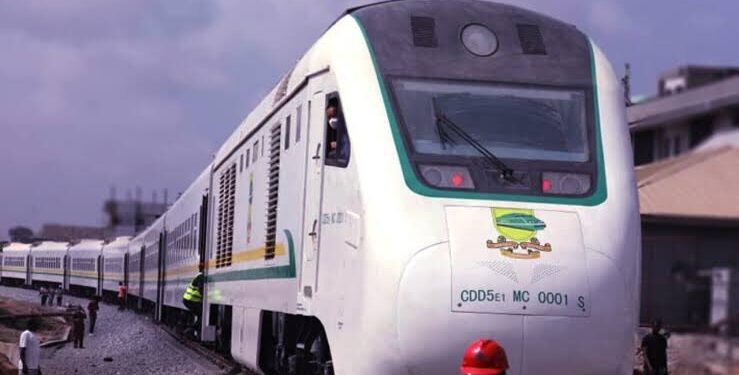By Madu Obiora
As someone who has spent decades working in logistics, infrastructure, and trade facilitation, I understand the critical role that efficient transportation systems play in national development. But beyond theory and policy, it’s always refreshing to experience the system in motion literally.
Recently, I took the train from Abuja to Kaduna. What I anticipated to be a routine journey turned out to be an experience worth talking about. In fact, it left me genuinely impressed and even more hopeful about what is possible in Nigeria when systems work.
From the onset, there was a sense of order. The train departed on time. No delays. No haphazard last-minute changes. That alone set the tone for what felt like a professionally run operation.
As I boarded, I noticed how well-maintained and air-conditioned the coach was. The environment was cool, clean, and surprisingly peaceful. The seats were comfortable, and the ambience inside the coach rivaled some of what you’d find in trains across more developed rail networks.
To my delight, the restaurant coach was functional and fully operational serving decent meals, snacks, and drinks to passengers who preferred not to travel on an empty stomach. There was movement, yet calm; people were engaging, yet orderly. It was clear that both passengers and staff had come to expect a certain level of performance, and it was being delivered.
What struck me most was how seamless the entire journey felt. From the point of boarding to arrival, it was a stress-free, on-schedule, and dignified experience. In a country where road travel is often fraught with delays, insecurity, and unpredictability, this train journey was a breath of fresh air.
It also left me thinking: This is what we should scale across the country.
If we can replicate this kind of efficiency, comfort, and coordination across our regional corridors connecting Lagos to Ibadan, Port Harcourt to Enugu, Kano to Katsina, and so on Nigeria’s internal trade, mobility, and logistics network would be transformed.
Key Takeaways
1. When infrastructure works, confidence builds.
The on-time departure, cool coaches, and functional restaurant proved that Nigerians could enjoy efficient public transport when systems are properly maintained and managed.
2. Seamless travel is not a luxury, it’s a right.
This journey reminded me that comfort, safety, and reliability in travel should be the norm, not the exception.
3. A model worth replicating.
If this level of service can be scaled across other routes like Lagos–Ibadan, Port Harcourt–Enugu, or Kano–Katsina it could revolutionize regional mobility and logistics.
4. Rail transport is critical to unlocking Nigeria’s logistics potential.
With safer, more reliable alternatives to road transport, we can reduce congestion, enhance trade efficiency, and improve regional integration especially in the AfCFTA era.
5. Experiences shape advocacy.
I have long championed multimodal transport, but this ride renewed my belief in the power of well-executed rail services to transform logistics in Africa.
And so, beyond enjoying the ride, I left with a renewed sense of advocacy. Our transport systems can work. Nigerians deserve reliability. We deserve safety. We deserve comfort. And clearly, when we commit to making it happen, it does.
I look forward to taking this journey again soon—and I can only hope others across Nigeria could enjoy such a smooth experience on our rail network.
#TransportTransformation #RailwayNigeria #InfrastructureThatWorks #LogisticsInAfrica #ObioraMadu #AbujaKadunaTrain #NigeriaOnTheMove #SupplyChainAfrica #SeamlessTravel #AfCFTAConnectivity #MultimodalLogistics













